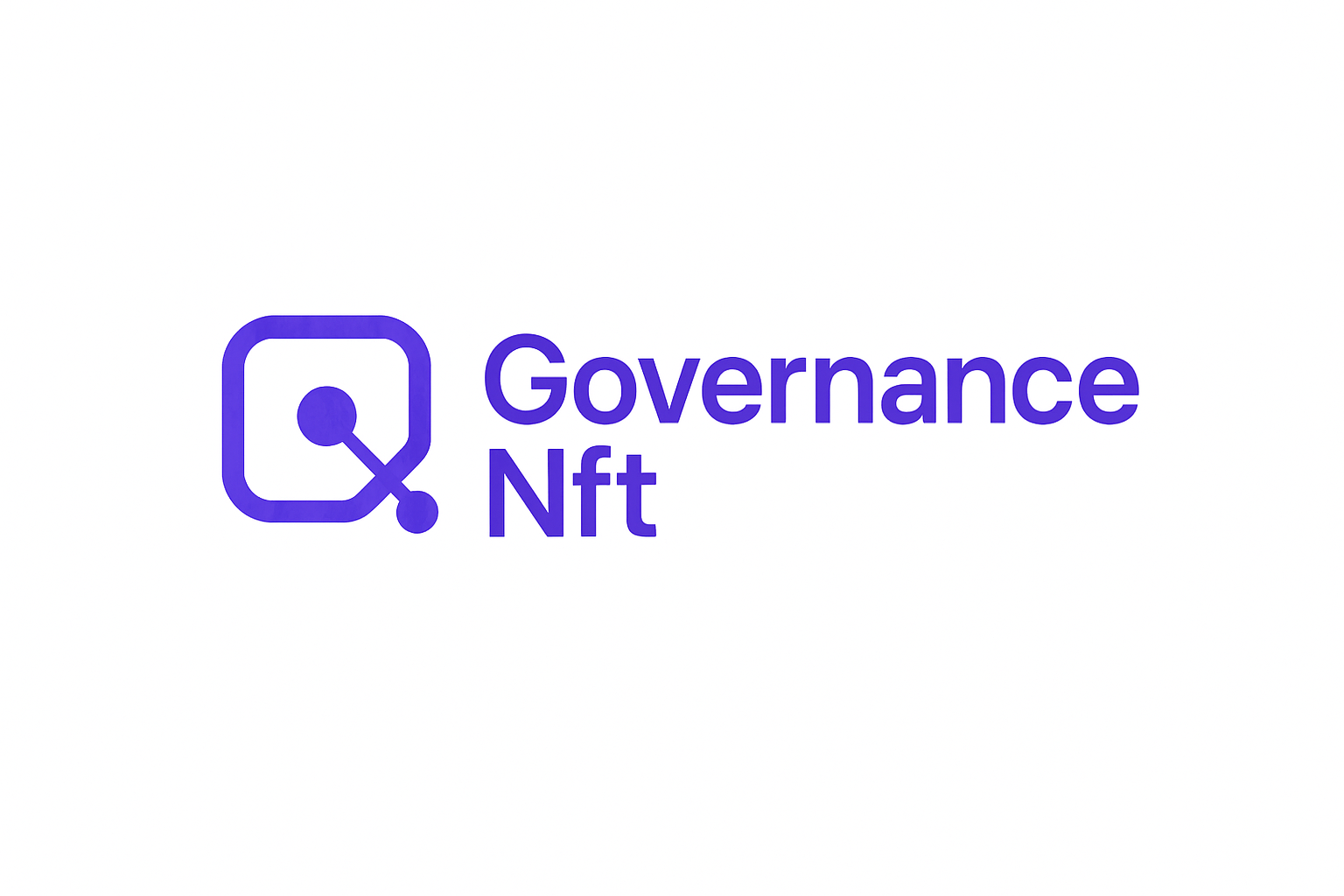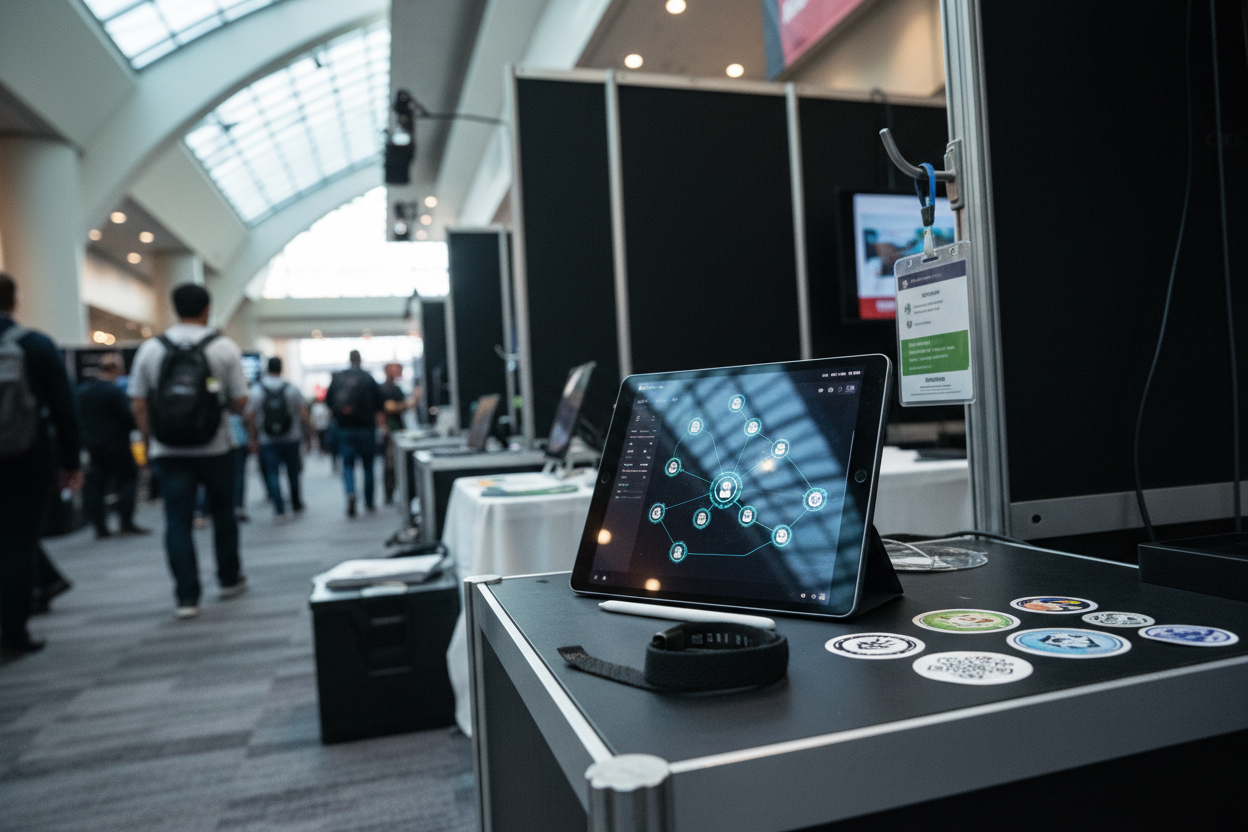
In 2025, decentralized governance is experiencing a sea change. DAOs, once defined by token-weighted voting and pseudonymous participation, are now rapidly embracing governance NFT badges and verifiable identity systems. These innovations are not just technical upgrades – they are fundamentally reshaping who gets to participate, how reputation is earned, and what it means to govern together in web3.
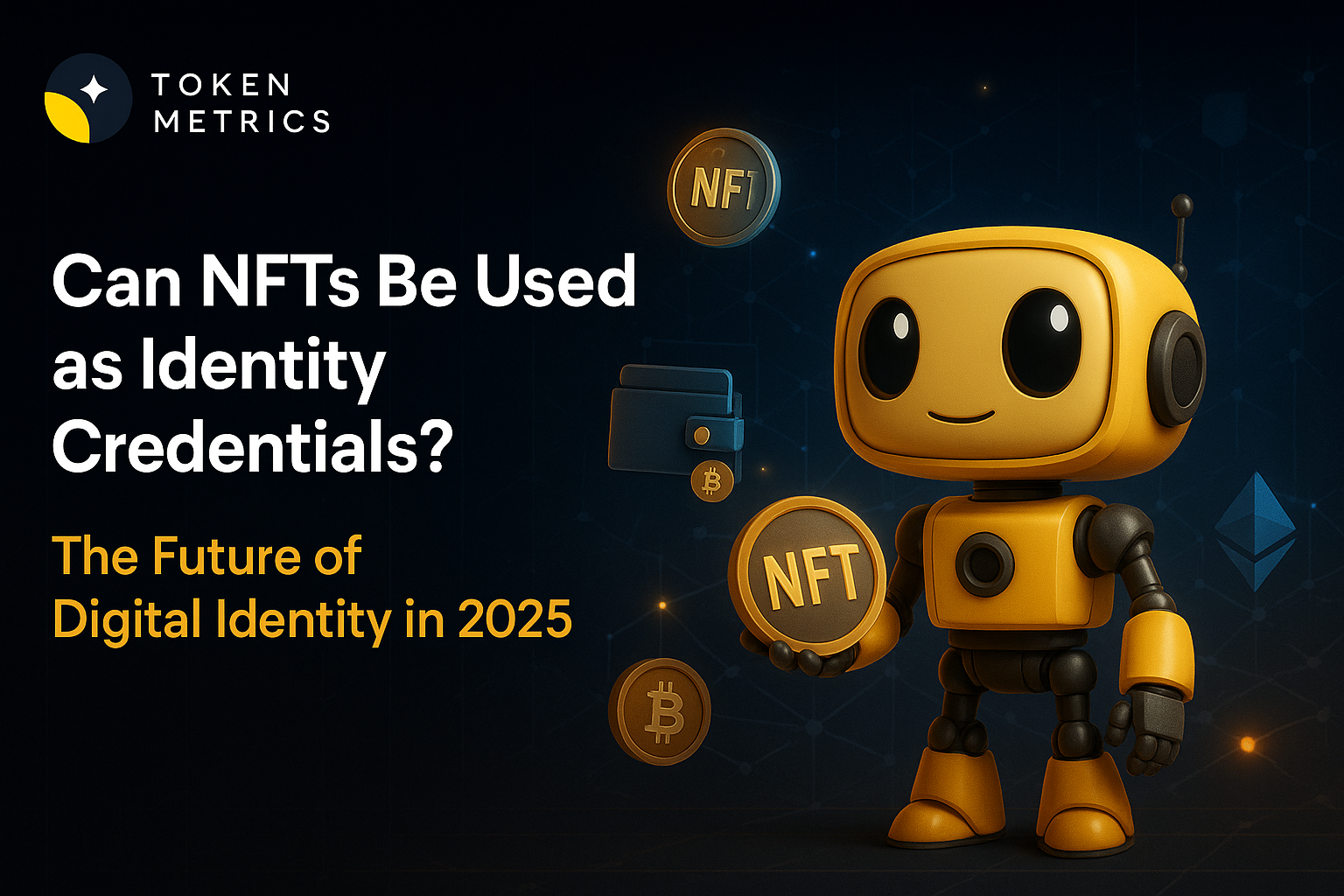
Why Traditional DAO Voting Needed an Upgrade
The classic 1-token-1-vote system has dominated DAOs for years, but its flaws have become impossible to ignore. Token-based voting can concentrate power in the hands of whales or early investors, while opening the door to manipulation by bots and Sybil attacks – where one person pretends to be many by creating multiple wallets. As Stanford University’s recent analysis highlights, quadratic voting and similar mechanisms offer some improvement but remain vulnerable unless paired with robust identity solutions.
This vulnerability isn’t theoretical. In high-stakes DAO proposals – from treasury allocations to protocol upgrades – even a handful of Sybil accounts can tilt the scales. The result? Erosion of trust, disengagement from genuine contributors, and decisions that don’t reflect the will or expertise of the community.
Governance NFT Badges: Turning Reputation Into Real Power
The answer emerging in 2025 is clear: governance NFT badges. Unlike fungible tokens that can be bought or sold, these badges serve as non-transferable on-chain credentials tied directly to a member’s contributions. Did you lead a successful working group? Ship a critical smart contract upgrade? Moderate discussions for six months straight? There’s a badge for that.
Platforms like Snapshot and specialized tools now let DAOs assign actual voting rights or proposal permissions based on badge ownership. This means influence is earned through verifiable action – not just wallet size. The effect is twofold:
- Meritocracy: Voting power shifts toward those who build, maintain, or meaningfully participate.
- Transparency: Every member can see who did what, making backroom deals far harder to pull off.
This shift is already visible across leading protocols and community DAOs. Members proudly display their badges as both status symbols and proof of work – fueling deeper engagement and more thoughtful governance processes.
Verifiable Identity: The End of Sybil Attacks?
If merit-based credentials solve one half of the puzzle, verifiable identity addresses the other: ensuring that every participant really is who they say they are. Cutting-edge solutions like Proof of Humanity blend social verification with cryptographic guarantees; participants submit evidence (often a short video) that’s vouched for by existing members before being issued a unique digital ID badge.
This approach doesn’t just prevent bots from gaming votes; it also enables truly fair systems like “one person one vote” on the blockchain without sacrificing privacy or decentralization. Projects like Humanity Protocol push this even further by using palm biometrics combined with zero-knowledge proofs – so users can prove their uniqueness without revealing sensitive data.
The result? DAOs gain new defenses against manipulation while opening doors to broader participation from real people worldwide – not just those with deep pockets or technical know-how.
The Ripple Effects: How Governance Is Changing Now
The convergence of NFT-based reputation and decentralized identity is setting new standards across web3 communities:
- Diversity in Decision-Making: More voices are heard as barriers fall for newcomers with proven contributions.
- Accountability: On-chain records mean actions (and bad actors) are visible to all members at all times.
- Sustainable Growth: Fairer systems attract long-term builders rather than short-term speculators chasing governance rewards.
If you want a deeper dive into how these trends play out in real-world DAOs today, check out our guide on on-chain reputation and NFT badges transforming DAO voting.
What’s especially striking in 2025 is how quickly the playbook for decentralized governance is evolving. DAOs that once struggled with low turnout and rampant Sybil exploits are reporting record engagement and a renewed sense of community trust. The shift from anonymous, capital-weighted votes to verifiable, merit-based participation is not just technical, it’s cultural. Members now see their badges as living resumes, opening doors to new working groups, leadership roles, and even cross-DAO collaborations.
Practical Impact: What DAO Voting Looks Like Now
Let’s break down how these advances are playing out in practice:
Real-World DAO Voting with NFT Badges & Verifiable Identity
-
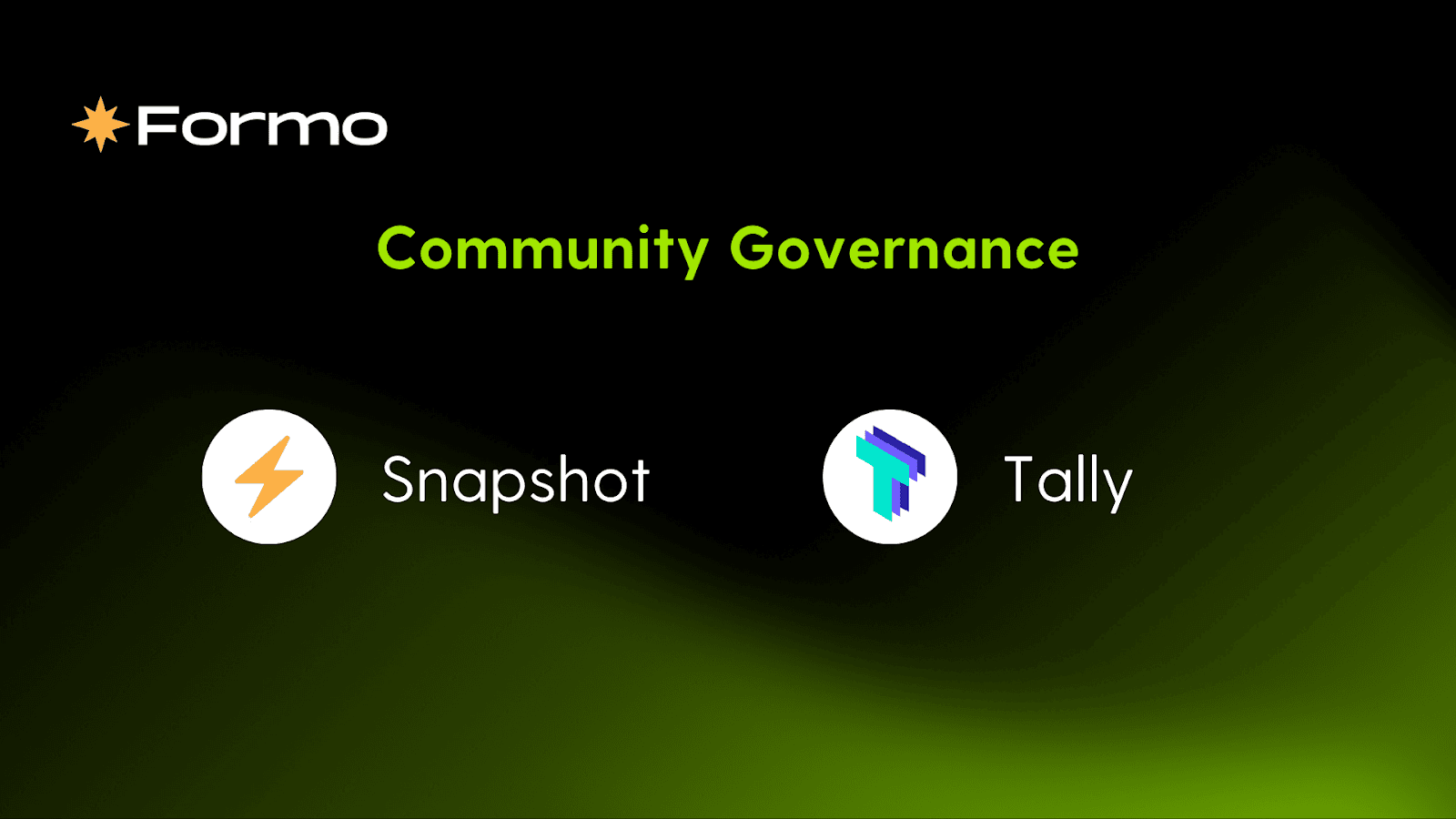
Snapshot’s Governance NFT Badges: In 2025, Snapshot enables DAOs to assign voting rights based on non-transferable NFT badges, such as “Core Developer” or “Top Contributor Q2 2025.” These badges reflect real contributions, ensuring that voting power is earned, not bought, and are visible on-chain for full transparency.
-

Proof of Humanity for Sybil-Resistant Voting: The Proof of Humanity protocol lets DAOs verify that each voter is a unique individual by requiring video submissions and community vouching. This decentralized identity system prevents Sybil attacks and guarantees one-person-one-vote fairness in DAO proposals.
-
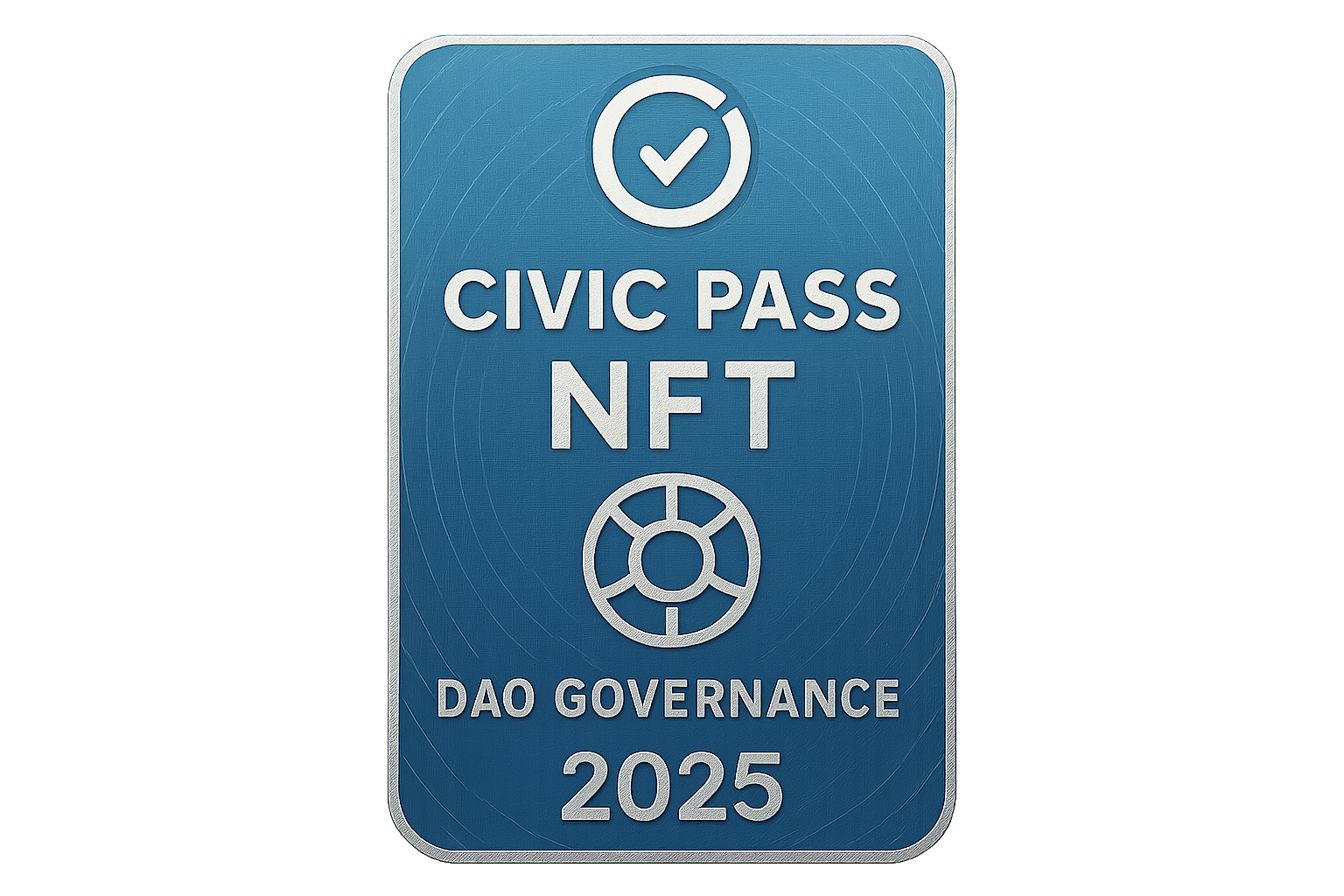
Civic Pass for DAO Member Verification: Civic Pass provides DAOs with plug-and-play identity verification using non-transferable NFT badges. Members complete a privacy-preserving KYC process, and only verified wallets can participate in governance, ensuring trusted, Sybil-resistant voting.
-

Humanity Protocol’s Palm Biometric Badges: Humanity Protocol issues Sybil-resistant digital IDs using palm biometrics and zero-knowledge proofs. These unique badges allow DAOs to verify real human participation without exposing personal data, supporting both privacy and fair voting.
-
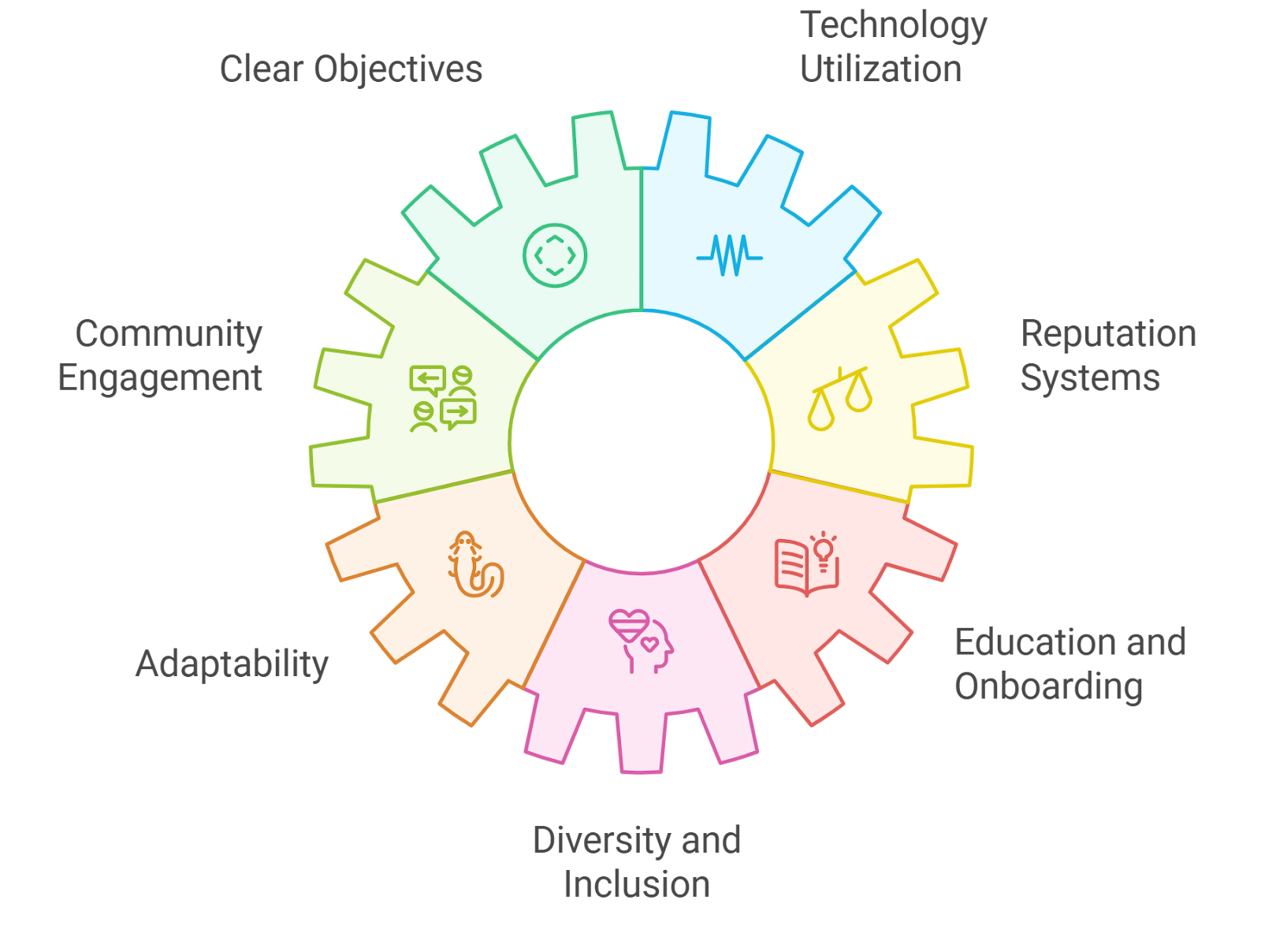
Fractal ID for Quadratic Voting: Fractal ID integrates decentralized identity with quadratic voting in DAOs. By linking voting rights to verified identities, DAOs can implement advanced voting mechanisms that are resistant to manipulation and reflect genuine community consensus.
1. One Person, One Vote, Finally Realized. By issuing unique governance NFT badges tied to decentralized IDs, DAOs can confidently implement fairer voting systems like quadratic voting or “one member one vote”: without fear of bot manipulation. This has leveled the playing field for smaller contributors and new joiners.
2. Dynamic Reputation Systems. Badges aren’t static: they evolve as you contribute more over time. This dynamic reputation model incentivizes ongoing engagement rather than one-off actions or vote-buying schemes. Members can see at a glance who’s actively shaping the DAO’s future.
3. Interoperable Credentials Across Web3. As more DAOs adopt open badge standards, your hard-earned credentials can travel with you, unlocking trust and influence across multiple communities. Imagine joining a new project and instantly being recognized for your prior impact elsewhere.
Challenges Ahead, and Why They’re Worth Tackling
No system is perfect yet. Privacy concerns remain top of mind as biometric IDs and social verification scale up; balancing transparency with user sovereignty is an ongoing challenge. There’s also work ahead to ensure that badge issuance remains truly decentralized, not captured by cliques or centralized councils within DAOs.
Still, the momentum is undeniable. With robust anti-Sybil measures and transparent on-chain credentials, DAOs are becoming more resilient against manipulation while cultivating healthier internal cultures. These advances are already inspiring new best practices for everything from grant funding to protocol upgrades, and will likely set the tone for web3 governance far beyond 2025.
Looking Forward: Building Trust at Scale
The adoption of DAO voting badges, verifiable NFTs, and decentralized identity isn’t just about stopping bad actors, it’s about empowering good ones. As these tools become standard across web3, expect to see:
- Bolder experimentation with democratic models: From liquid democracy to plural voting, all backed by Sybil-resistant credentials.
- Smoother onboarding for newcomers: Clear pathways to earn influence through real contribution, not just capital.
- A global talent pool unlocked: Anyone can participate meaningfully regardless of geography or financial status, so long as they prove their humanity and value add.
If you’re interested in exploring how your DAO can implement these innovations today, our resources on using NFT badges for decentralized governance offer actionable frameworks and case studies from leading projects pushing boundaries right now.
The bottom line? In 2025, trust in decentralized organizations no longer rests on blind faith or token balances, it’s being built badge by badge, identity by identity, vote by verified vote. The future of web3 governance is transparent, inclusive, and finally within reach for everyone willing to contribute.
